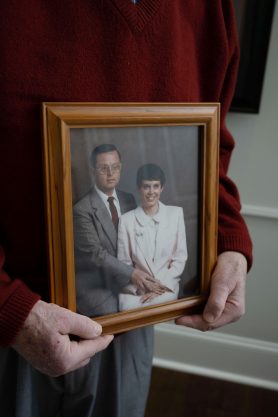- Diseases
- Acoustic Neuroma (14)
- Adrenal Gland Tumor (24)
- Anal Cancer (68)
- Anemia (2)
- Appendix Cancer (16)
- Bile Duct Cancer (26)
- Bladder Cancer (72)
- Brain Metastases (28)
- Brain Tumor (232)
- Breast Cancer (714)
- Breast Implant-Associated Anaplastic Large Cell Lymphoma (2)
- Cancer of Unknown Primary (4)
- Carcinoid Tumor (8)
- Cervical Cancer (158)
- Colon Cancer (166)
- Colorectal Cancer (116)
- Endocrine Tumor (4)
- Esophageal Cancer (44)
- Eye Cancer (36)
- Fallopian Tube Cancer (8)
- Germ Cell Tumor (4)
- Gestational Trophoblastic Disease (2)
- Head and Neck Cancer (12)
- Kidney Cancer (128)
- Leukemia (342)
- Liver Cancer (50)
- Lung Cancer (286)
- Lymphoma (278)
- Mesothelioma (14)
- Metastasis (30)
- Multiple Myeloma (100)
- Myelodysplastic Syndrome (60)
- Myeloproliferative Neoplasm (4)
- Neuroendocrine Tumors (16)
- Oral Cancer (100)
- Ovarian Cancer (172)
- Pancreatic Cancer (160)
- Parathyroid Disease (2)
- Penile Cancer (14)
- Pituitary Tumor (6)
- Prostate Cancer (146)
- Rectal Cancer (58)
- Renal Medullary Carcinoma (6)
- Salivary Gland Cancer (14)
- Sarcoma (238)
- Skin Cancer (296)
- Skull Base Tumors (56)
- Spinal Tumor (12)
- Stomach Cancer (64)
- Testicular Cancer (28)
- Throat Cancer (92)
- Thymoma (6)
- Thyroid Cancer (96)
- Tonsil Cancer (30)
- Uterine Cancer (80)
- Vaginal Cancer (16)
- Vulvar Cancer (20)
- Cancer Topic
- Adolescent and Young Adult Cancer Issues (20)
- Advance Care Planning (10)
- Biostatistics (2)
- Blood Donation (18)
- Bone Health (8)
- COVID-19 (362)
- Cancer Recurrence (120)
- Childhood Cancer Issues (120)
- Clinical Trials (630)
- Complementary Integrative Medicine (22)
- Cytogenetics (2)
- DNA Methylation (4)
- Diagnosis (232)
- Epigenetics (6)
- Fertility (62)
- Follow-up Guidelines (2)
- Health Disparities (14)
- Hereditary Cancer Syndromes (126)
- Immunology (18)
- Li-Fraumeni Syndrome (8)
- Mental Health (116)
- Molecular Diagnostics (8)
- Pain Management (62)
- Palliative Care (8)
- Pathology (10)
- Physical Therapy (18)
- Pregnancy (18)
- Prevention (914)
- Research (392)
- Second Opinion (74)
- Sexuality (16)
- Side Effects (604)
- Sleep Disorders (10)
- Stem Cell Transplantation Cellular Therapy (216)
- Support (402)
- Survivorship (320)
- Symptoms (182)
- Treatment (1786)
Donor: Why I wrote MD Anderson into my will – and made a gift now
2 minute read | Published December 22, 2021
Medically Reviewed | Last reviewed by an MD Anderson Cancer Center medical professional on December 22, 2021
Writing MD Anderson into our wills was an easy decision for my late wife, Jackie, and me. Because even after she received a stage IV lung cancer diagnosis, MD Anderson’s clinical trials program gave us four extra years to spend together. And its wonderful doctors continue to save people’s lives.
I’ve followed U.S. News & World Report’s “Best Hospitals” rankings for years. So, I knew MD Anderson was No. 1 in cancer treatment. That’s why I made up my mind early on that if anyone in my family ever got cancer, we’d travel to Houston from our home in Bluffton, South Carolina.
But Jackie and I soon discovered more reasons to support MD Anderson’s mission. Over time, we developed some really close relationships with Dr. Vivek Subbiah, his nurse practitioner Anna Poullard, and many other members of their staff. And every month, when we went in for Jackie’s checkups, it became less like going to a cancer hospital and more like going to visit old friends.
At MD Anderson, Dr. George Blumenschein told us about a clinical trial that targeted the exact genetic alteration (RET fusion) Jackie had. That surprised us, because only about 1% to 2% of all lung cancer patients have it. But under Dr. Subbiah’s care, all of the tumors in Jackie’s lungs and brain either shrank or stayed the same. They never got any bigger.
As a result, Jackie was able to resume many of the activities she’d previously enjoyed, such as painting, playing mahjong, and teaching our dogs tricks. She was still doing fantastically when she died of causes unrelated to her cancer in July 2020.
Jackie and I updated our wills several years ago to make gifts through our estate to MD Anderson, because we wanted its researchers to be able to continue doing their valuable work. But after Jackie’s passing, I discussed with their Development team ways I might give something now as well. While MD Anderson is still included in my will, I also made a separate donation this year to fund Dr. Subbiah’s research projects for years to come — and to honor my late wife’s memory in the process.
To learn more about how legacy giving can support MD Anderson’s mission to end cancer, contact our Trusts, Estate and Gift Planning team at plannedgiving@mdanderson.org or 1-866-928-9494.

Jackie and I soon discovered more reasons to support MD Anderson’s mission.
William Brady
Caregiver


